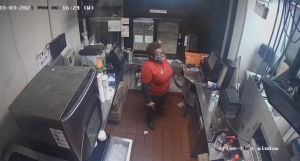Online food delivery platforms like Swiggy
and Zomato will have to pay 5 per cent goods and services tax (GST) from
January 1 as the new change in the GST rules will be effective from the very
first day of 2022. The change was made on September 17, 2021, in a bid to
crackdown on eateries that don’t pay taxes.
Also Read: Ahead of Union Budget 2022, Nirmala Sitharaman chairs 46th GST council meet
What
is the new change?
The new change will bring all kinds of
commercial eateries under the ‘restaurant service’ that would attract 5 per
cent GST without any input tax credit (ITC), the Union finance ministry had
said after the meeting in September. Previously, the restaurants themselves
collected and deposited the tax to the government, but now the delivery
platforms will be responsible for paying the GST on ‘restaurant service’ to the
taxmen.
Also Read: Who is Piyush Jain?
Why
the change?
The new change was brought after the
government found that several restaurants listed on the food delivery platforms
were evading taxes, even though they were being collected from the customers.
“As ‘restaurant service’ has been notified
under section 9(5) of the CGST Act, 2017, the electronics commerce oprator
(ECO) shall be liable to pay GST on restaurant services provided, with effect
from the 1st January, 2022,” a circular from the finance ministry said.
Also Read: Explained | How 5% GST collected by Zomato, Swiggy will not impact consumers
“Accordingly, the ECOs will no longer be
required to collect TCS and file GSTR 8 in respect of restaurant services on which
it pays tax in terms of section 9(5),” it added.
Do
customers have to pay for new GST?
According to the finance ministry
customers, who buy the services of food delivery platforms, will not have to
pay any new tax. The 5 per cent GST would only be deposited through a different
route to the government.
Also Read: Ignorant mistake: Zomato reinstates agent fired over Hindi lesson to customer
What
would be the implication of this change?
The new change in GST may affect smaller
restaurants and cloud kitchen owners that are earning less than Rs 20 lakh per
annum, said the National Restaurant Association of India (NRAI). The body said
that these restaurants were not filing GST previously. However, they will now
need to do so as the move will bring them under the government’s tax radar.
The change may also force restaurants to
increase the price of food that means customers have to pay more.







